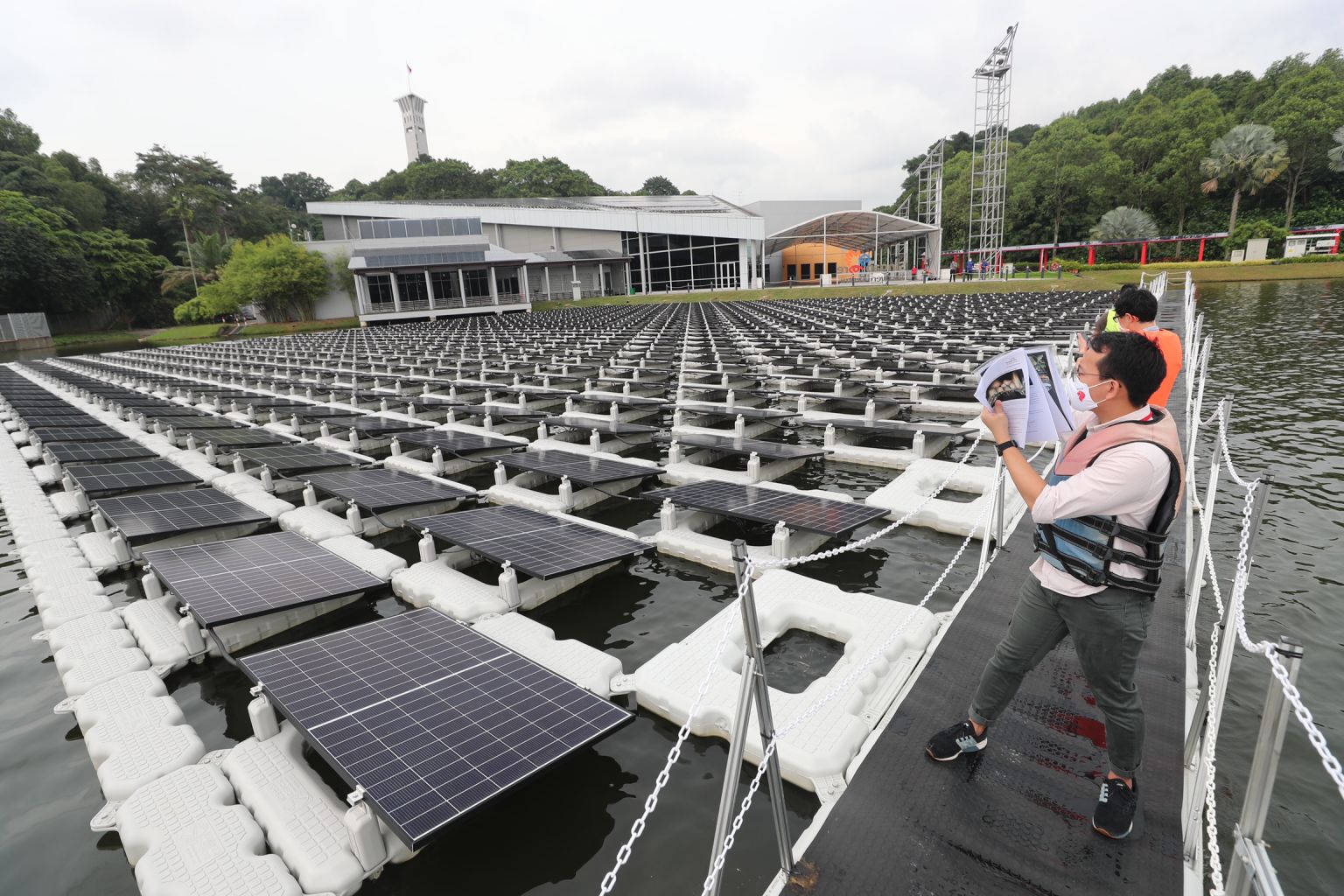Experts discuss how Singapore's pandemic recovery can drive regional sustainability
Sign up now: Get ST's newsletters delivered to your inbox

Singapore can drive efforts in the region through bilateral agreements, funding clean energy and investing in incentive schemes like carbon markets.
ST PHOTO: TIMOTHY DAVID
SINGAPORE - As Singapore recovers from the effects of the Covid-19 pandemic, it has the rare opportunity to accelerate its sustainability efforts not only at home but also in the region, said experts during a forum on sustainability and the environment on Tuesday (Jan 12).
Associate Professor Simon Tay, chairman of the Singapore Institute of International Affairs, said Singapore can drive efforts in the region through bilateral agreements, funding clean energy and investing in incentive schemes like carbon markets.
Speaking on the second day of the four-day Singapore Perspectives conference organised by the Institute of Policy Studies (IPS), Prof Tay noted that Singapore is a top investor in neighbouring countries like Malaysia, Vietnam, Indonesia and Myanmar.
"We can and should use this economic engagement to further our green recovery and green opportunities," he said, adding that Asean has not coordinated its sustainability efforts well despite many of its member states making individual commitments to the Paris Agreement on climate change.
Four other speakers at the forum highlighted the roles that the Government, businesses and the finance sector can play in Singapore's "green recovery".
Finance professor Alex Edmans of the London Business School said it is not enough for companies to simply avoid doing harm, such as by reducing carbon emissions.
He said a sustainable business should mean one that actively does good and creates value for society by solving social problems instead of seeking profits.
While it may seem unrealistic to say that a business should make this its primary goal, Prof Edmans said his research has found that serving society first can be profitable. He cited two Singapore-based agribusiness companies, Olam International and Wilmar International, as examples.
Olam's intended outcomes include "prosperous farmers and food systems, thriving communities and regeneration of the living world", Prof Edmans noted, while Wilmar has set targets for the number of farmers it enrols in its support programmes, which provide training and disseminate best practices.
Mr Munib Madni, chief executive of Singapore fund management company Panarchy Partners, said research like Prof Edmans' has helped the finance sector embrace sustainable businesses, especially those that effect further change within their industries.
He added that the finance sector is increasingly recognising and rewarding firms that practise sustainability, with banks and private equity firms now more likely to offer cheaper loans to companies that are pursuing environmentally sustainable projects.
Sounding a cautionary note, Ms Melissa Low, a research fellow at the Energy Studies Institute, said reducing Singapore's absolute carbon emissions will see jobs being cut and workers needing re-training for other industries as companies move away from fossil fuels.
She said retrenched workers from fossil fuel-related industries may not have the desire or the skills required to transition into clean technology jobs.
"A green recovery can happen only if we aggressively develop new capabilities and expertise for both immediate and long term needs, so Singapore can be at the forefront of green innovation," she said.
Mr Veerappan Swaminathan, founder and director of the Sustainable Living Lab social enterprise, said Singapore has much to offer companies pursuing innovations by creating a suitable environment and nurturing talent.
Many companies that come here with their projects view Singapore as a stepping stone to the larger region, Mr Veerappan said, and this is another way Singapore can lead regional sustainability efforts.


